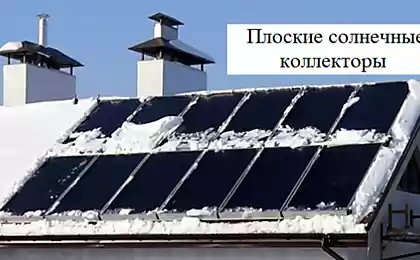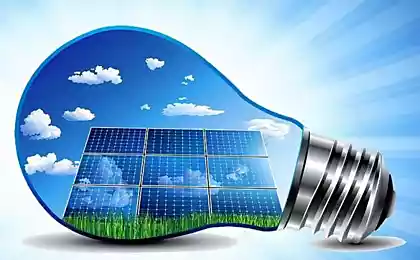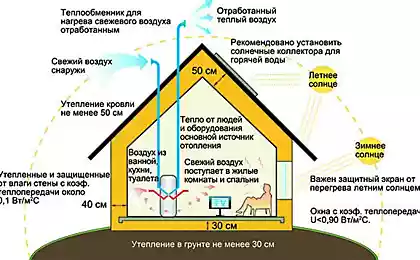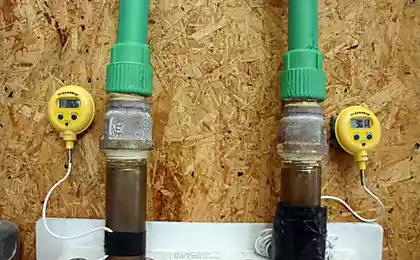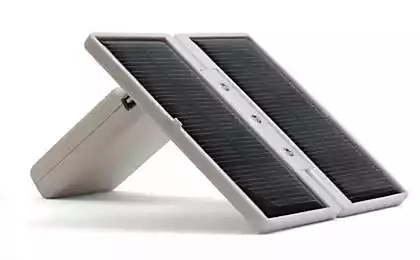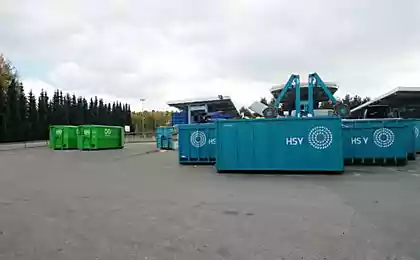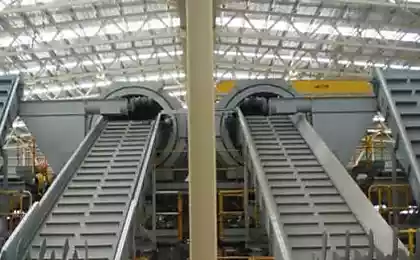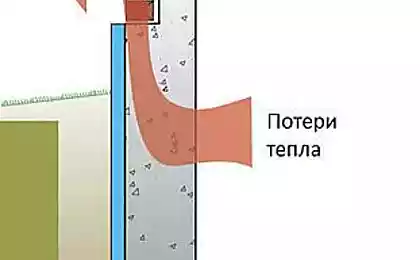418
Recycling waste heat into electricity
Due to rapid industrialization, the world saw the development of a range of technologies that generate heat bargain. Until now this heat is often regarded as a waste that causes people to think about how this huge amount of waste heat can be converted into source of electricity. Now, when physicists at the University of Arizona finding new ways of generating energy through heat, this dream actually becomes a reality.
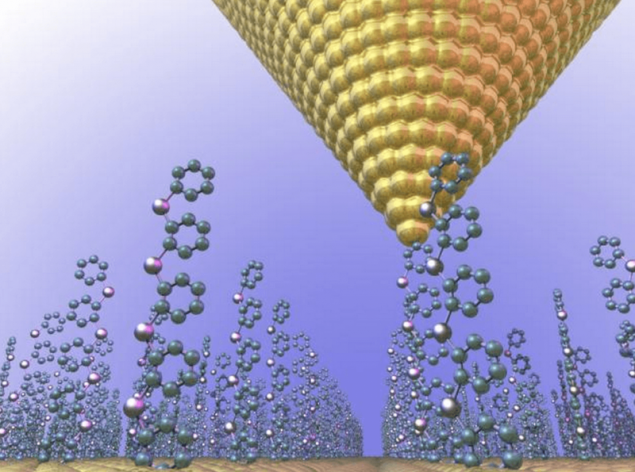
A research group of Arizona state University:
Professor of physics Charles Stafford is head of the research group, and he along with his team worked on waste to energy. The result of their work was published in the scientific journal ACS Nano.
Scientist and doctoral student in science at the College of Optical Sciences of Arizona Justin Bergfeld shared the view that "thermoelectricity can convert heat directly into electrical energy device without moving parts. Our colleagues in this region say they are confident that the device is a computer model which we developed, can be constructed with the characteristics that we see in our modeling."
Advantages:
Elimination of ozone depleting materials: using the waste heat as a form of electricity has several advantages. You need to take into consideration that on the one hand a theoretical model of molecular thermoelectric helps in increasing the efficiency of cars, power plants, factories and solar panels, and on the other that the thermoelectric materials, such as chlorofluorocarbons (CFCs ), which destroy the ozone layer have become obsolete.
More efficient design:
Head of the research team Charles Stafford is hoping for a positive result. He expects their project of thermoelectric devices will be 100 times better previous achievements. If the design that they did really work, then the dream will come true all those engineers who wanted to generate energy from waste, but did not have the required efficient and economical device for this.
There is no need to mechanisms:
Invented by Bergfeld Sat device thermal conversion does not require any machines or ozone-depleting chemicals, as was the case with refrigerators and steam turbines, which were earlier used to convert waste into electrical energy. Now this work is done a layer of rubber-like polymer, which is sandwiched between two metals and acts as an electrode. Thermoelectric devices are Autonomous, do not require motor processes, is easy to manufacture and maintain.
Utilization of waste energy:
Mainly energy is generated cars and industry. Automotive and industrial waste can be used to generate electricity by coating exhaust pipes with a thin layer of the developed material. Physics also decided to use the law of quantum physics, which, however, is not very often used, but gives great results when it comes to generating energy from waste.
Advantages in comparison with solar energy:
Molecular thermoelectric devices may help in the generation of solar energy and reduce dependence on the solar cells efficiency system
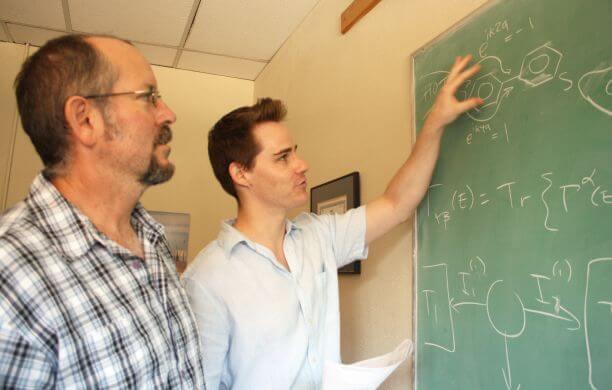
How it works:
Working with molecules and wondering how to use them for a thermoelectric device, Bergfield and Stafford have not found anything special until one student did not find that these molecules have their special function. A large number of molecules was sandwiched between electrodes and exposed to a stimulating source of heat. The flow of electrons along the molecule has been divided into two parts: the first part of the stream has encountered a benzene ring, and the second with the flow of electrons following along each branch of the ring.
Diagram of benzene ring was designed in such a way that the electron moves to a greater distance around the circle that is the cause of the loss of the ring of two electrons reaching each other in phase on the other side of benzene ring. The waves extinguish each other at the junction, and the gap in the flow of electric charge caused by the temperature difference creates a voltage between the electrodes.
Thermoelectric devices developed by Bergfelder and Stafford can generate power that will light a 100 watt bulb or increase the vehicle's efficiency by 25%.published
Source: www.alternative-energy-news.info/waste-heat-to-electricity/

A research group of Arizona state University:
Professor of physics Charles Stafford is head of the research group, and he along with his team worked on waste to energy. The result of their work was published in the scientific journal ACS Nano.
Scientist and doctoral student in science at the College of Optical Sciences of Arizona Justin Bergfeld shared the view that "thermoelectricity can convert heat directly into electrical energy device without moving parts. Our colleagues in this region say they are confident that the device is a computer model which we developed, can be constructed with the characteristics that we see in our modeling."
Advantages:
Elimination of ozone depleting materials: using the waste heat as a form of electricity has several advantages. You need to take into consideration that on the one hand a theoretical model of molecular thermoelectric helps in increasing the efficiency of cars, power plants, factories and solar panels, and on the other that the thermoelectric materials, such as chlorofluorocarbons (CFCs ), which destroy the ozone layer have become obsolete.
More efficient design:
Head of the research team Charles Stafford is hoping for a positive result. He expects their project of thermoelectric devices will be 100 times better previous achievements. If the design that they did really work, then the dream will come true all those engineers who wanted to generate energy from waste, but did not have the required efficient and economical device for this.
There is no need to mechanisms:
Invented by Bergfeld Sat device thermal conversion does not require any machines or ozone-depleting chemicals, as was the case with refrigerators and steam turbines, which were earlier used to convert waste into electrical energy. Now this work is done a layer of rubber-like polymer, which is sandwiched between two metals and acts as an electrode. Thermoelectric devices are Autonomous, do not require motor processes, is easy to manufacture and maintain.
Utilization of waste energy:
Mainly energy is generated cars and industry. Automotive and industrial waste can be used to generate electricity by coating exhaust pipes with a thin layer of the developed material. Physics also decided to use the law of quantum physics, which, however, is not very often used, but gives great results when it comes to generating energy from waste.
Advantages in comparison with solar energy:
Molecular thermoelectric devices may help in the generation of solar energy and reduce dependence on the solar cells efficiency system

How it works:
Working with molecules and wondering how to use them for a thermoelectric device, Bergfield and Stafford have not found anything special until one student did not find that these molecules have their special function. A large number of molecules was sandwiched between electrodes and exposed to a stimulating source of heat. The flow of electrons along the molecule has been divided into two parts: the first part of the stream has encountered a benzene ring, and the second with the flow of electrons following along each branch of the ring.
Diagram of benzene ring was designed in such a way that the electron moves to a greater distance around the circle that is the cause of the loss of the ring of two electrons reaching each other in phase on the other side of benzene ring. The waves extinguish each other at the junction, and the gap in the flow of electric charge caused by the temperature difference creates a voltage between the electrodes.
Thermoelectric devices developed by Bergfelder and Stafford can generate power that will light a 100 watt bulb or increase the vehicle's efficiency by 25%.published
Source: www.alternative-energy-news.info/waste-heat-to-electricity/
Vladimir inventors presented an updated draft of the electric vehicle
Psychosomatics: the Back is the place where we put all that we have no desire to watch
